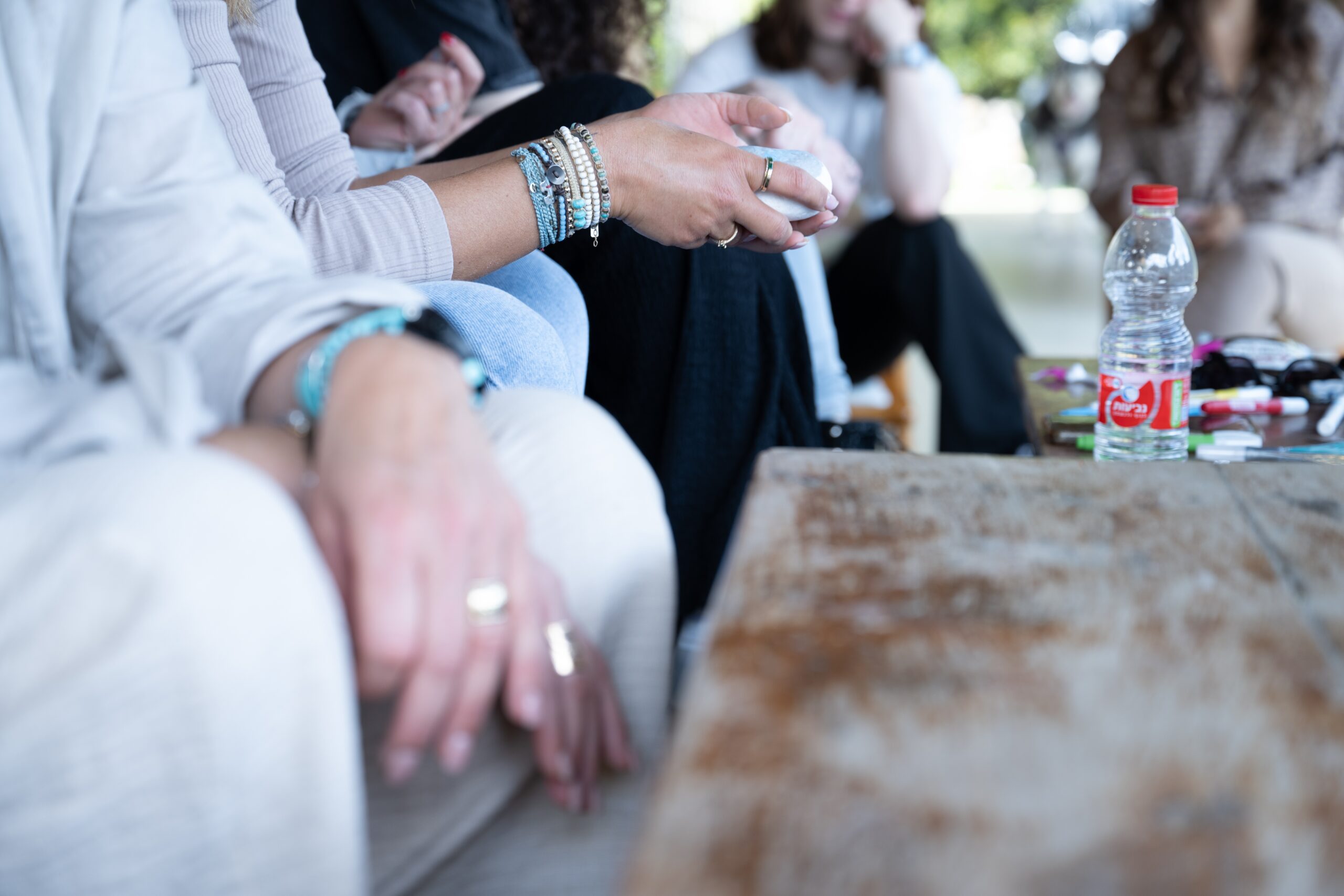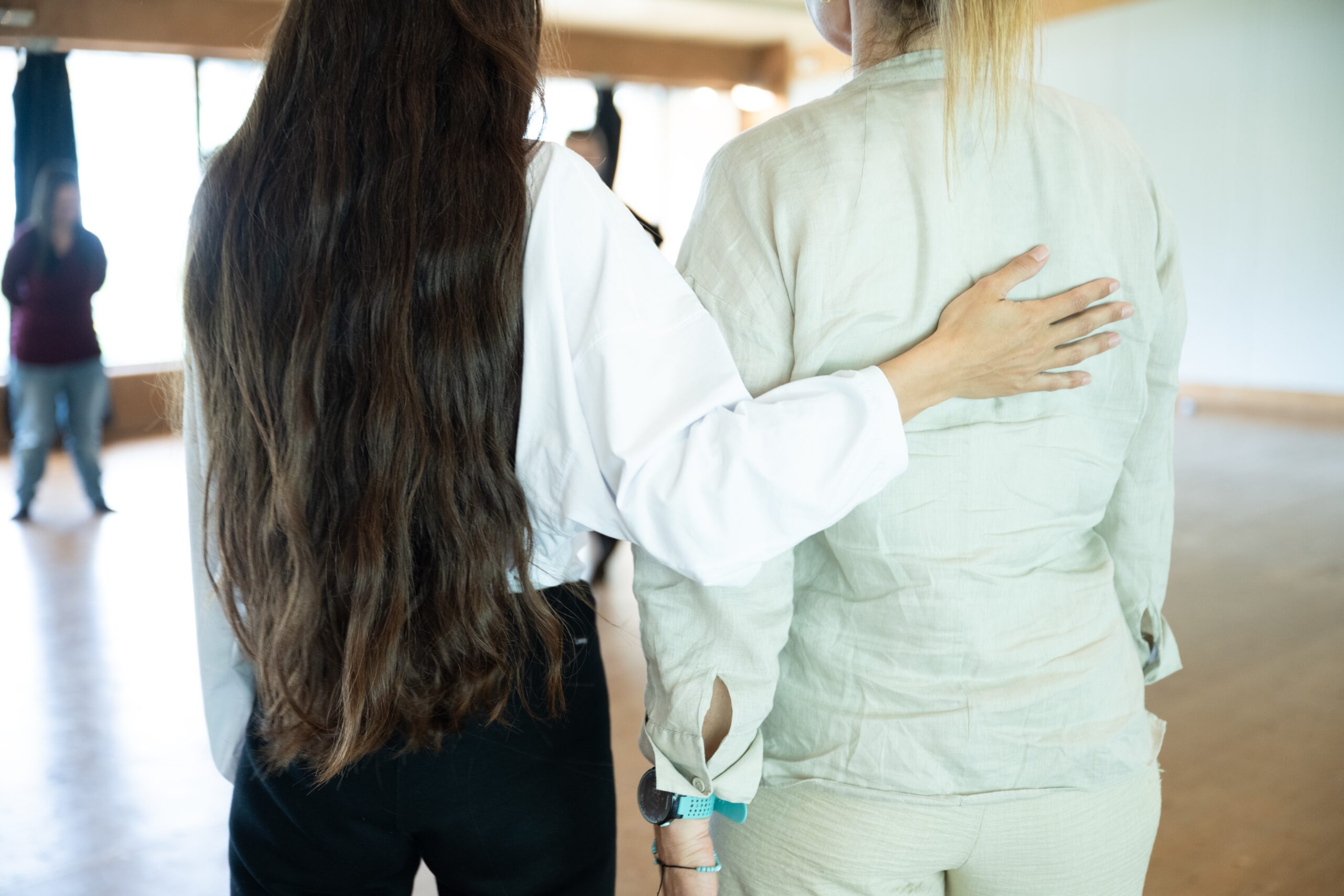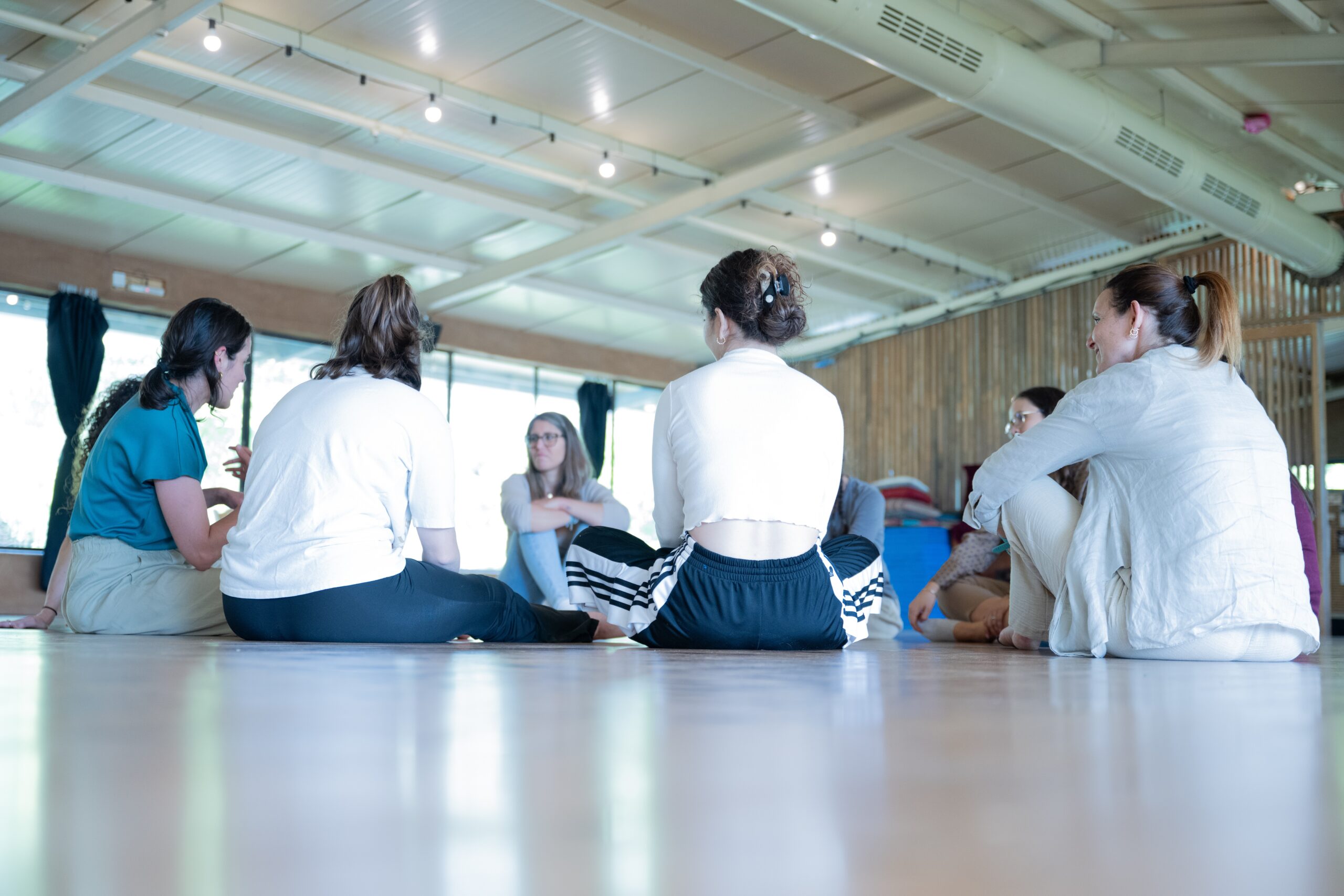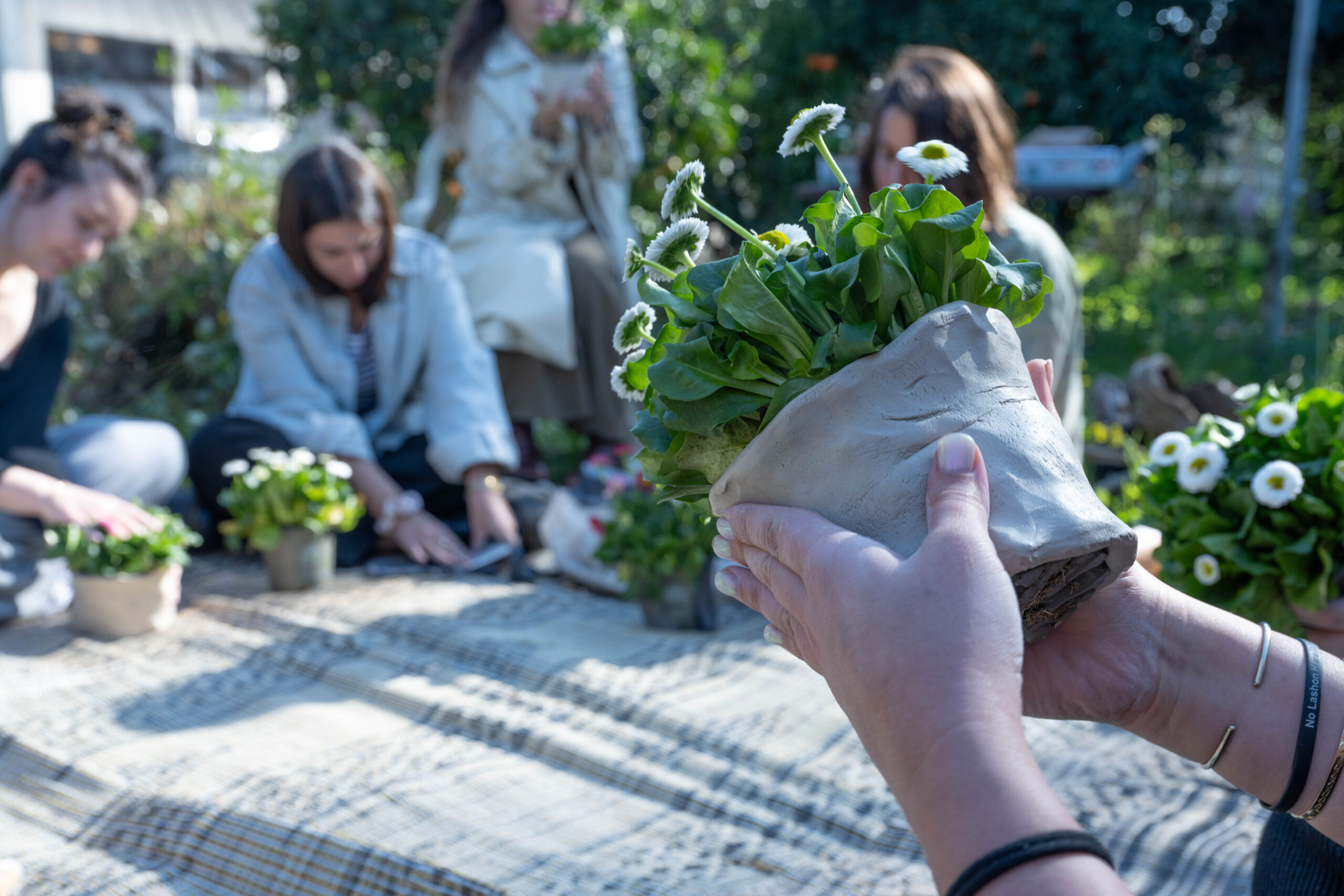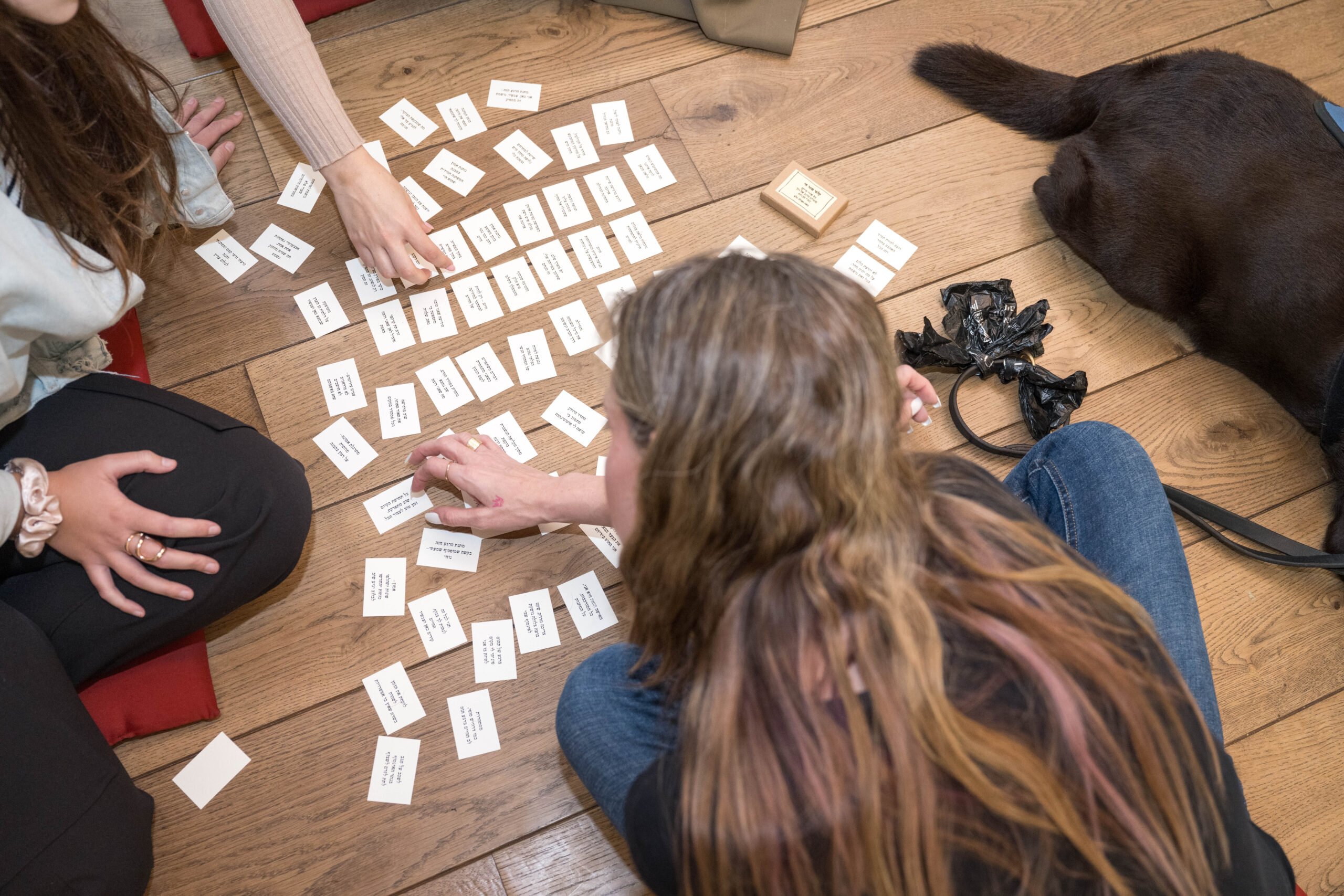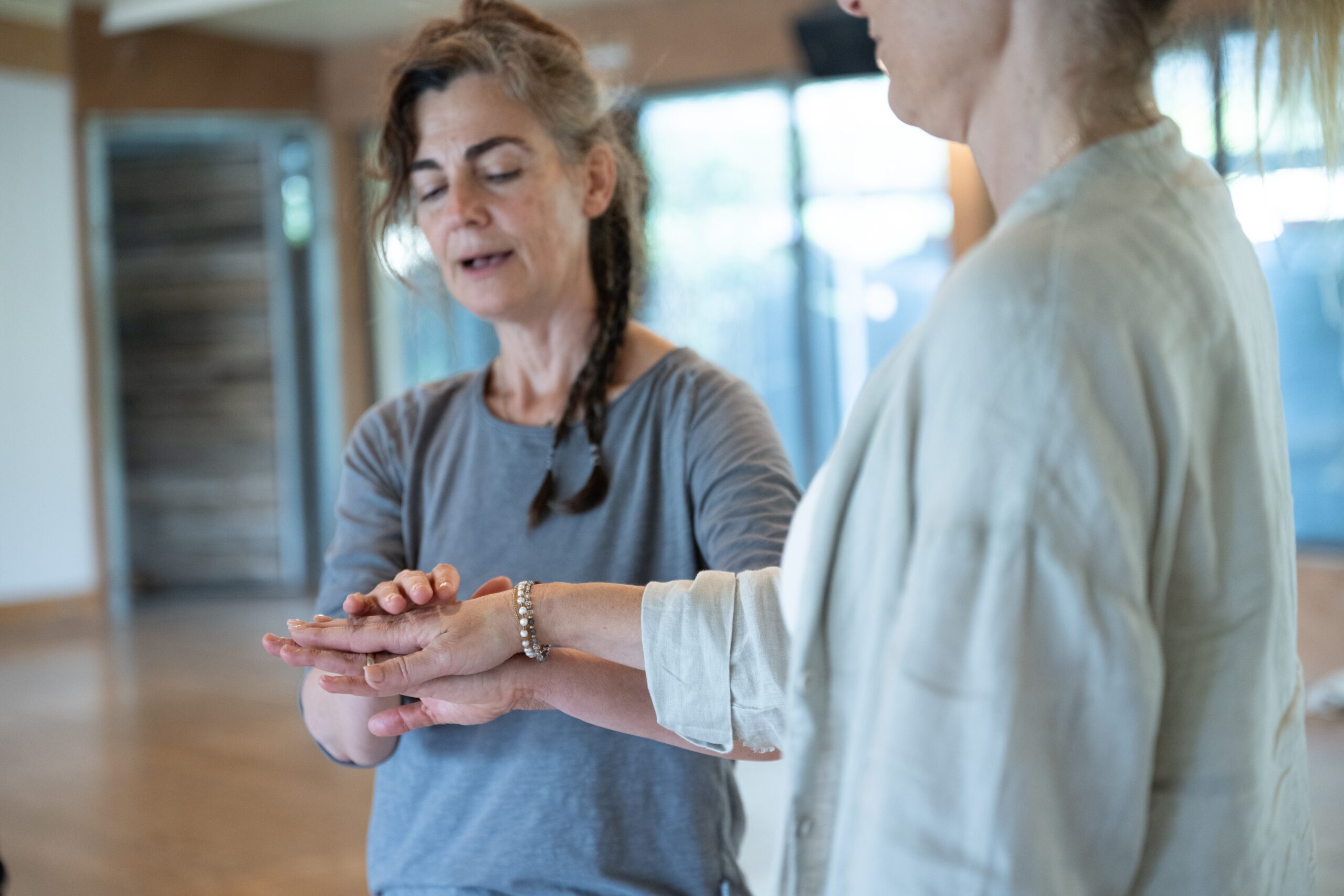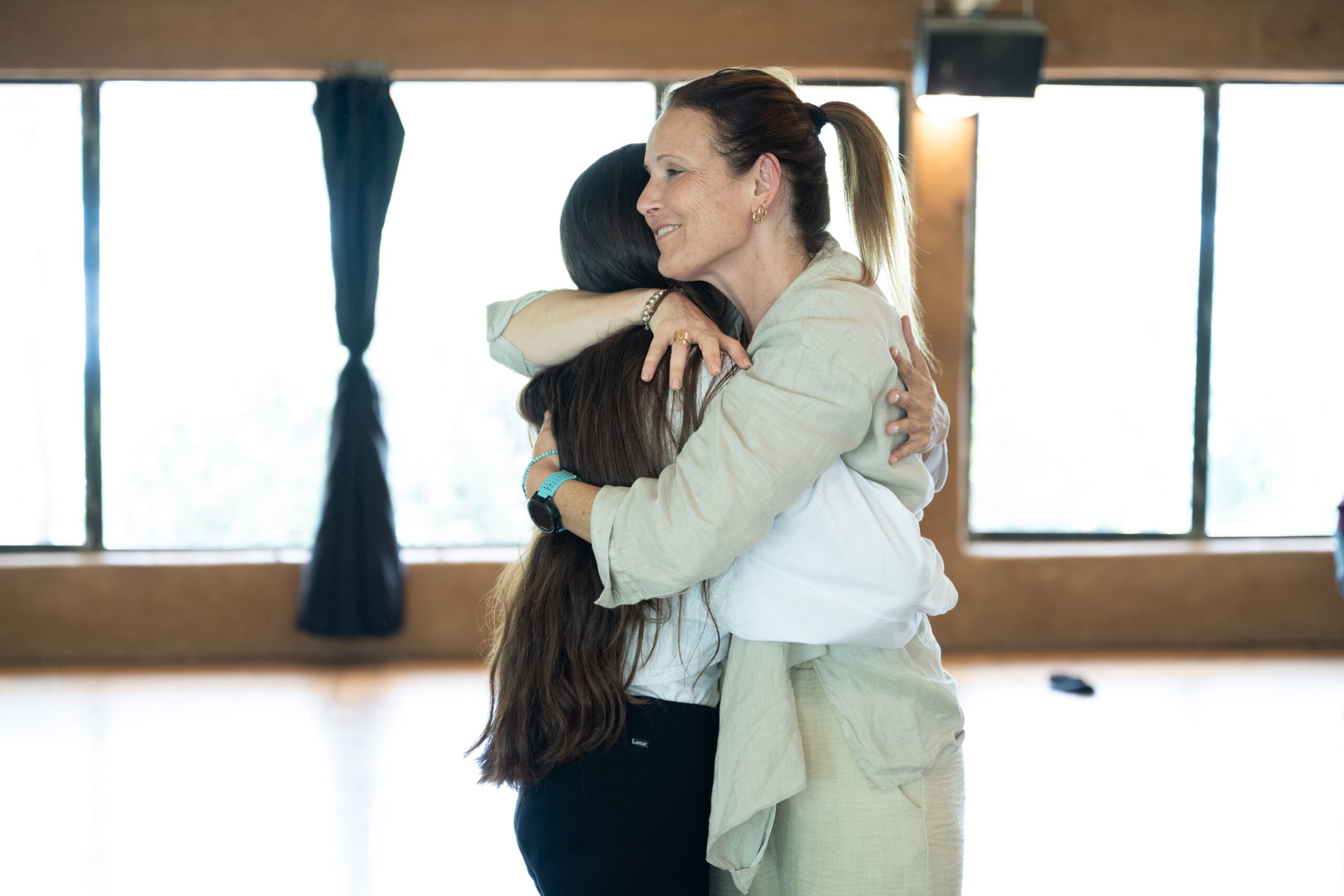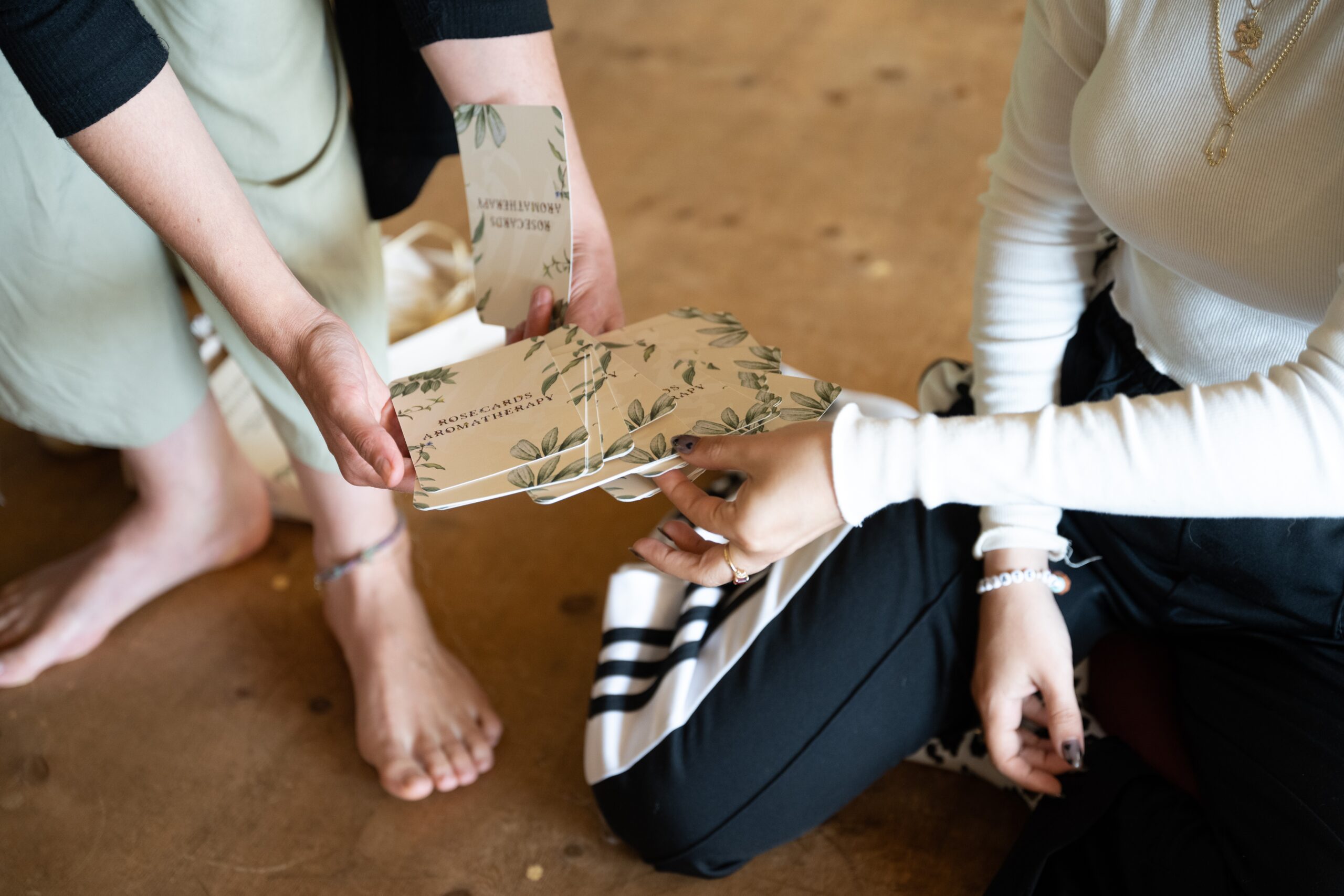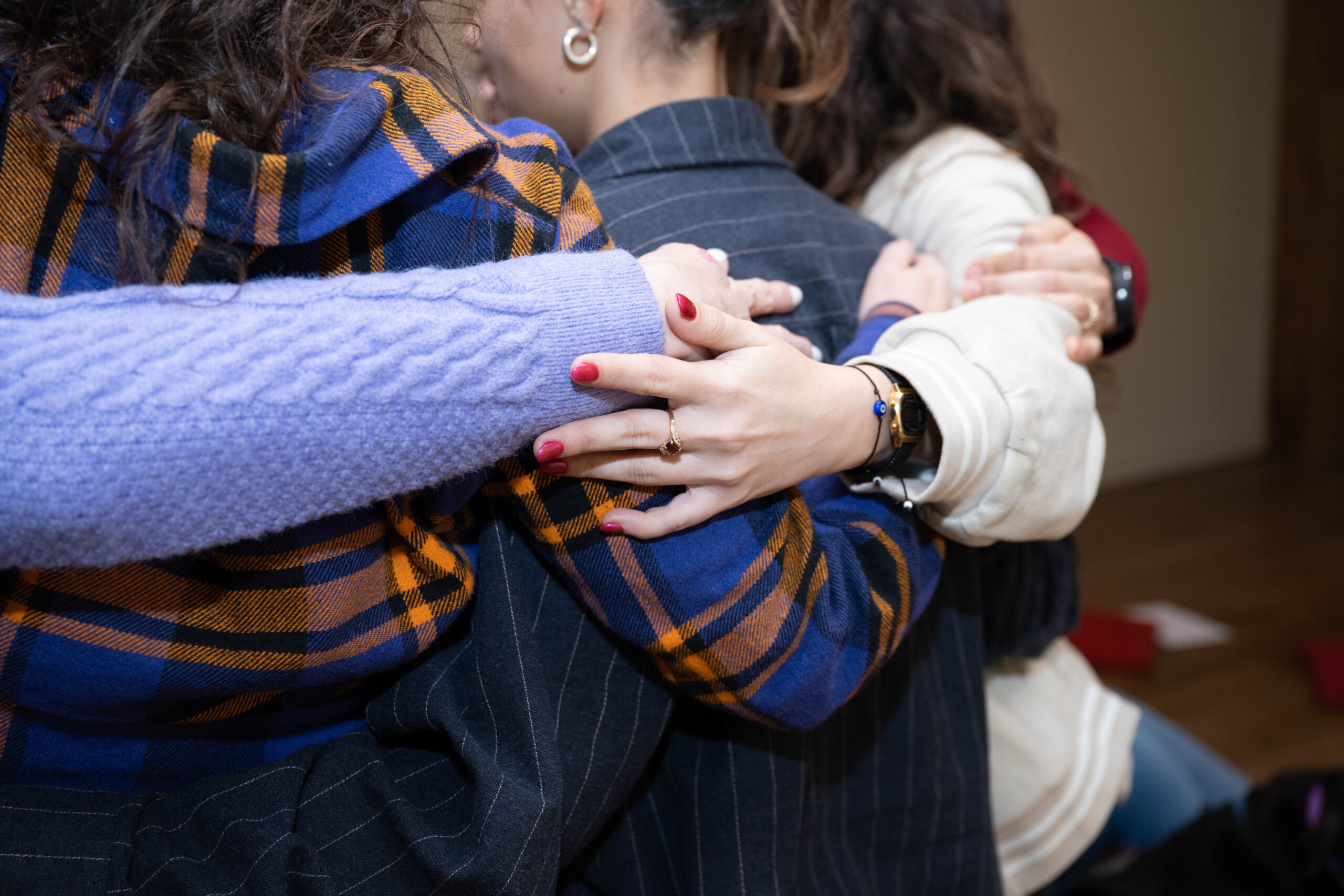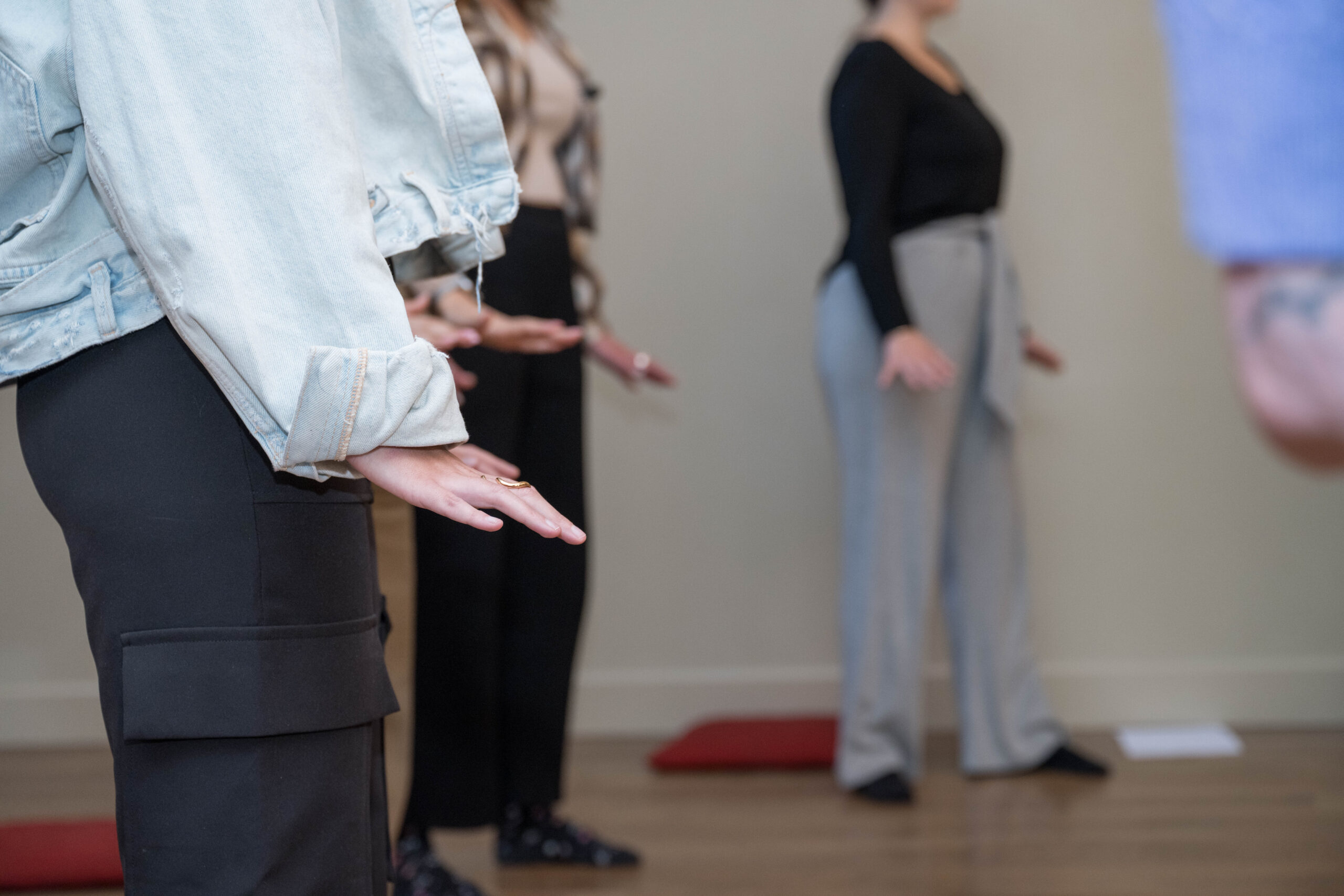A socially supportive women's community
The association’s activities are conducted in a group setting, based on research that identifies social support groups as one of the most effective factors for growth and healing in the rehabilitation processes of women with military-related PTSD.
Establishing a socially supportive women’s community is a cornerstone of the association’s mission. Unlike men, most women dealing with military-related PTSD are not part of organic groups, such as units or teams, and many did not participate in a specific war or operation. Instead, they encountered traumatic situations during the course of their service and within the scope of their roles, leaving them with lasting effects they continue to cope with today.
Feelings of shame, isolation, and inadequacy often prevent many of these women from seeking help, leaving them feeling alone and invisible. Creating a supportive social community fosters a sense of recognition, belonging, and acceptance—essential foundations for growth and recovery.
Workshops and retreats
The association conducts its activities through bi-monthly, one-day workshops held at various locations tailored to the nature of the activities and the needs of the group. The workshops focus on building resilience, equipping participants with tools to navigate life’s challenges, offering social group support, and providing professional guidance from the association’s expert staff. These workshops are designed with the understanding that, in addition to conventional support that some community members receive outside the association, integrating diverse therapeutic practices from the mind-body realm creates a complementary healing space. This supportive environment aims to enhance resilience and coping mechanisms.
Workshops are typically led by the association’s professional team and occasionally feature guest facilitators who offer unique perspectives from various therapeutic fields, such as trauma-sensitive yoga, water therapy, movement therapy, nature therapy, equine therapy, and more.
The association also extends its services to cohesive groups of women serving together in different settings and to women nearing their release from service. This is done with the understanding that processing their service experiences is crucial for preventing or mitigating the long-term effects of traumatic events encountered during their service.
Additionally, 2-4 times a year, the association hosts multi-day retreats. These retreats provide women in the community an opportunity to step away from their daily routines and focus on healing and personal growth in a safe and supportive environment. The extended timeframe allows for continuous and deeper therapeutic processes that are not possible in a single-day workshop. The association’s staff, in collaboration with external facilitators, supports the group throughout the retreat, adapting the program to meet the unique needs and characteristics of the participants.
Personal Support
In addition to the various group activities, members of the “Arim Roshi” community receive personalized professional support tailored to their individual needs. The sense of “I am not alone” is a crucial aspect of the rehabilitation process, and this personal support is designed to offer both emotional and practical assistance to each member.
The association’s professional team provides guidance on a range of topics, including navigating recognition processes, handling bureaucracy, accessing entitlements, referrals to relevant professionals, family support, and more.
For inquiries regarding personal support, please contact:
Neta Shari, Clinical Attorney
052-4337527
research
Given the increasing number of women in combat roles and those exposed to the stresses of war and military traumas in Israel, it is crucial to study their unique experiences and challenges. This need has become even more pressing in the aftermath of the October 7 tragedy and the Iron Swords War. To address this, the Arim Roshi association is incorporating research into its activities.
The study is being led by Dr. Michal Tofurak and Dr. Racheli Haim-Dahan and has been approved as a qualitative exploratory study by the Ethics Committee of Tel Hai College. So far, two focus groups have been conducted with the following objectives:
- To understand the experiences and perceptions of women exposed to traumatic events related to military or security service, and to identify their specific needs.
- To develop a set of interventions and support measures tailored to these women.
- To identify additional variables that should be explored in future studies to further the understanding and promote the mental well-being of this population.
As the research progresses, additional focus groups, personal interviews, and quantitative surveys are planned to expand the scope and depth of the study.

